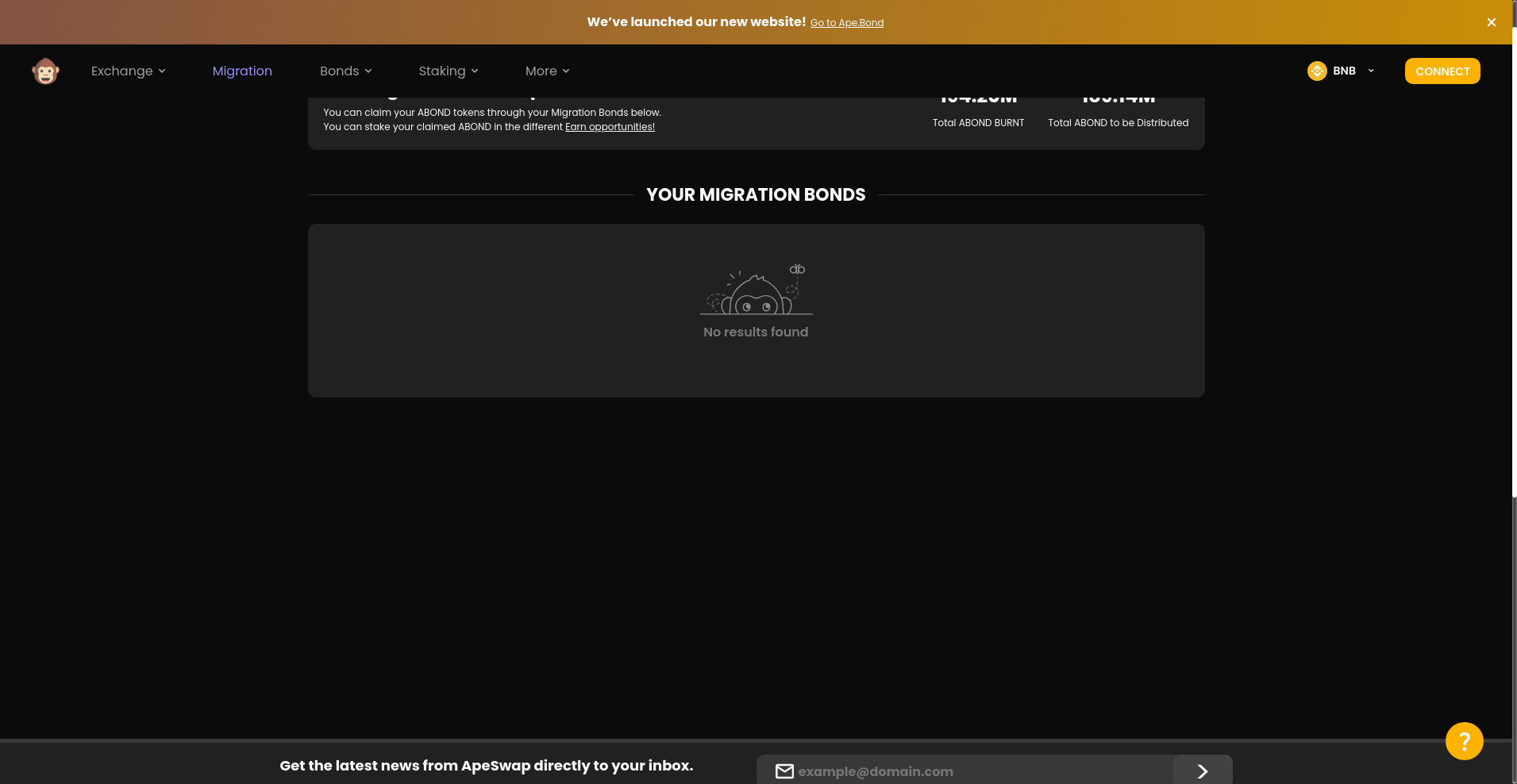ApeSwap.finance Bond Market Review: Assessing Legitimacy and Risks in a Multi-Chain DeFi Ecosystem

What Is ApeSwap Finance: An Introduction
ApeSwap Finance stands out as a prominent multi-chain decentralized finance (DeFi) hub that offers a suite of services including token swapping, yield farming, staking, bonds, NFTs, and governance mechanisms. Operating primarily on Binance Smart Chain (BSC), alongside other chains like Polygon, Ethereum, and Arbitrum, ApeSwap aims to democratize access to DeFi by providing transparent, accessible, and secure tools for its community.
This review provides an objective analysis of ApeSwap's core features, including its bond markets, security posture, tokenomics, ecosystem activities, and long-term potential. By examining these components, we aim to shed light on the platform's legitimacy and the associated risks for potential investors and users.
The Team and Vision Behind ApeSwap Finance
The publicly available information suggests that ApeSwap's team comprises experienced developers and DeFi enthusiasts, though specific identities remain largely anonymous. The project's strategic focus on cross-chain support, community governance, and innovative features indicates a dedicated effort to build a sustainable and scalable DeFi ecosystem.
- Active development and multiple security audits conducted by reputable firms such as CertiK, Fairyproof, and Gemz.
- Roadmap milestones include launch of new features, platform upgrades, and community engagement initiatives.
- Significant emphasis on transparency, with detailed audits and clear communication channels.
While the team’s anonymity is common in DeFi, it warrants cautious optimism. The platform’s ability to deliver on its roadmap remains crucial to the platform’s perceived credibility.
Assessing the Security and Integrity of ApeSwap Finance
Based on available audit reports from CertiK, Fairyproof, and Gemz, ApeSwap Finance has undergone multiple security assessments. The audit reports are accessible via official links, which enhances transparency. The audits generally confirm that core smart contracts are free from critical vulnerabilities, though some issues and recommendations are noted.
- Audit results indicate a high level of security, with scores above industry averages.
- Potential vulnerabilities include upgrade mechanisms and governance modules that require careful management.
- Active bug bounty programs are in place, encouraging community and white-hat security testing.
However, the platform's security largely depends on ongoing audits, timely patches, and how it manages governance upgrades. Investors should remain aware of inherent risks in smart contract security and the importance of third-party verification.
A Breakdown of ApeSwap Finance Tokenomics
The native token, BANANA, along with other tokens like GNANA and ABOND, underpin the ApeSwap ecosystem. The total supply of BANANA is approximately 326.5 million tokens, with a mix of allocations among team, community, and treasury, often subject to vesting schedules.
- Total Supply: ~326.5 million BANANA tokens.
- Token Distribution: Includes allocations to team, liquidity pools, treasury, and community rewards, with ongoing vesting to prevent immediate dumps.
- Inflation/Deflation: Emission schedules govern token inflows, with mechanisms like burning or buybacks potentially in play.
- Utility: BANANA is used for yield farming, staking, governance, and incentivizing liquidity providers.
- Risks: Inflationary pressures and concentration of token holdings could impact price stability and decentralization.
The recent migration to ABOND suggests a strategic shift in token utility and economic model, worth monitoring closely.
Evaluating the ApeSwap Liquidity and Ecosystem Activity
On-chain data indicates active participation across multiple pools, with significant liquidity on key pairs such as BTC-BNB, ETH-BNB, and BUSD-USDC. However, recent reports show that APRs for farms are currently at 0.00%, suggesting a period of low incentives or a pause for rebalancing.
Despite the low yield environment, ApeSwap continues to develop and release new features, including NFT integrations, NFT staking, and cross-chain support. The platform's multi-chain support and strategic partnerships aim to bolster ecosystem robustness and user retention.
Community engagement remains active, with vibrant social channels and governance proposals, signaling ongoing interest and development. Nonetheless, the platform needs to maintain consistent activity and incentive mechanisms to sustain growth.
The Fine Print: Analyzing the Terms and Conditions
Official documentation and legal terms are publicly accessible. While most clauses are standard for DeFi platforms—covering user agreements, risk disclosures, and privacy policies—investors should scrutinize:
- Potential lock-in periods and vesting terms for bonds and staking rewards.
- Terms related to smart contract upgrades and admin rights that could centralize control.
- Clauses around treasury management and fund utilization.
No unusual or highly risky clauses stand out, but comprehensive legal review is recommended before significant financial commitments.
Final Analysis: The Investment Case for ApeSwap Finance
Overall, ApeSwap appears to be a credible project with multiple security audits, active development, and a broad ecosystem supporting DeFi functionalities. Its multi-chain approach and diverse utility tokens—BANANA, GNANA, and ABOND—reflect a strategy to attract various user segments and adapt to evolving DeFi landscapes.
Pros / Strengths
- Multiple security audits from reputable firms, indicating proactive security measures.
- Strong multi-chain support broadening reach and user base.
- Established community engagement channels and governance mechanisms.
- Innovative features like bonds, NFTs, and cross-chain swaps reinforce ecosystem versatility.
- Ongoing development and transparency via audit reports and public roadmaps.
Cons / Risks
- Some features, such as farm APRs, are currently at 0.00%, indicating reduced incentives or temporary inactivity.
- Dependence on smart contract security, which can never be fully guaranteed despite audits.
- Potential centralization risks if governance mechanisms are not fully decentralized.
- Market volatility affecting token prices and ecosystem sustainability.
- Crypto regulatory uncertainties could impact project operations.
Potential investors and users should weigh these factors carefully, monitoring ongoing development, security audits, and ecosystem activity. While ApeSwap demonstrates many hallmarks of a legitimate and ambitious DeFi project, inherent risks characteristic of the sector necessitate cautious engagement.
In conclusion, ApeSwap Finance positions itself as a comprehensive DeFi hub with a solid security posture and strategic ecosystem components. Its success hinges on continued development, community trust, and the ability to navigate the volatile DeFi landscape effectively.

Emily Davis
Digital Forensics Investigator
Digital forensics investigator. I follow the money on the blockchain to uncover the truth behind crypto scams and exploits. Every transaction tells a story—I'm here to make sure it's heard.
Similar Projects
-
McDonald's Coin
Review of McDonald's Coin: Crypto Scam Checker & Project Analysis
-
Hopey
Hopey ($HOPE) Review: Assessment of Security & Future Risks
-
Reflexer Ungovernance Token
Reflexer Ungovernance Token Review: Scam or Legit Crypto?
-
PREME Token
Review of PREME Token: Is this Crypto Project a Scam or Legit? Crypto Scam Checker & Project Review
-
BoredSpace
Crypto Scam Checker Review: Is BoredSpace a Legit Project or Scam?